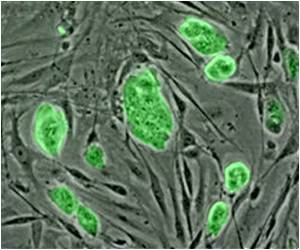Omega-3 fatty acids are found to help immunotherapy and other cancer treatments by enhancing their efficacy.

‘Omega-3 fatty acids are found to help immunotherapy and other cancer treatments by enhancing their efficacy.’





“Dietary interventions can be powerful tools because they are relatively simple and inexpensive to implement,” said Abigail Kelly, a research assistant at Harvard Medical School’s Beth Israel Deaconess Medical Center in Boston. “Our findings show that omega-3 supplementation has the potential to broadly improve immunotherapy and other anti-cancer drugs in the clinical setting.” Research from various laboratories has suggested that omega-3 fatty acids can help reduce cancer risk whereas consuming too many omega-6 fatty acids can stimulate cancer. Sources of omega-3s include fish, nuts, and seeds while omegas-6s are found in meats, eggs, and other foods.
In the new studies, Kelly and senior author Dipak Panigraphy wanted to find out how diets supplemented with these fatty acids affected the anti-tumor activity of immune checkpoint blockade immunotherapy and an anti-inflammatory therapy that inhibits the enzyme soluble epoxide hydrolase (sEH). The immunotherapy has regulatory approval and is being used clinically while the anti-inflammatory therapy is undergoing clinical development.
The researchers used state-of-the-art mouse models of primary and metastatic tumors for the new study. They began by feeding the mice either a standard diet or a diet high in omega-3 or 6 for 10 days before tumor injection and for the duration of the studies.
One week after the tumors were injected, mice in each diet group were started on immunotherapy, anti-inflammatory therapy, both therapies together, or no treatment.
Advertisement
In mice receiving the high omega-3 diet and both cancer treatments, up to 67 percent of tumor growth was inhibited compared to mice receiving no treatment and a normal diet. This indicates possible synergistic anti-tumor activity, meaning that the combined effect may be greater than the sum of its parts.
Advertisement
The researchers are now performing additional studies to determine the mechanism of action of the potentially synergistic anti-tumor activity imparted by omega-3 supplementation.
They are conducting these studies with human cancer tissues and cells, human immune cells, and animal models to aid with translation to cancer patients. These new results from Kelly and colleagues may represent a new treatment approach that remains to be evaluated in humans.
Source-Eurekalert














